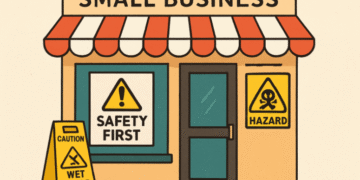In business-to-business (B2B) environments, ensuring consistent cash flow is essential for maintaining a company’s operational efficiency and growth. However, managing unpaid debts, particularly in commercial settings, can be a significant challenge. This is where dedicated commercial recovery comes into play. Specialized approaches and strategies tailored to B2B collections help businesses address unique obstacles that arise in commercial debt recovery. In this article, we’ll explore the most common challenges in commercial collections and how companies can overcome them to improve their commercial debt collection success.
1. Complex Payment Agreements and Contracts
One of the key challenges in commercial debt collection is dealing with complex payment agreements and contracts. In B2B transactions, contracts often have intricate terms related to payment schedules, installment plans, or credit terms. These complexities make it difficult to enforce payments when customers fail to meet their obligations.
How to Overcome:
- Thorough Documentation: To avoid disputes, businesses should ensure that every contract is clear and well-documented. Terms of payment, late payment penalties, and interest rates should be stated explicitly. This can prevent misunderstandings down the line.
- Proactive Communication: Regular communication with clients can help prevent overdue payments. Instead of waiting until the debt becomes delinquent, businesses should remind clients of upcoming payment deadlines and discuss any potential issues in advance.
Partnering with a dedicated commercial recovery service can also streamline this process, as agencies experienced in handling commercial contracts can swiftly identify and manage contractual disputes.
2. Maintaining Client Relationships
Another significant challenge is maintaining a positive client relationship while pursuing unpaid debts. In B2B collections, businesses need to strike a delicate balance between recovering what they’re owed and preserving relationships for future transactions. Aggressive collection tactics can damage client relationships, leading to the loss of valuable business.
How to Overcome:
- Diplomacy in Collections: Businesses can maintain relationships by approaching debt collection in a diplomatic manner. Friendly but firm reminders, professional communication, and offering flexible payment plans can help recover debts without alienating clients.
- Outsource to Experts: Using a dedicated commercial recovery agency can further alleviate this challenge. Collection agencies specialize in tactful communication and negotiation, ensuring debts are collected in a way that minimizes damage to business relationships. Since they serve as an intermediary, clients often view the collection process less personally.
3. High Value of Delinquent Accounts
In B2B settings, the value of delinquent accounts can be significantly higher than in consumer debt collections. A single overdue invoice can represent a substantial portion of a company’s revenue, placing a serious strain on cash flow. When large sums are at stake, delays in payments can disrupt operations, hinder growth, and impact a company’s ability to pay its own vendors.
How to Overcome:
- Timely Action: Early intervention is crucial when it comes to collecting high-value debts. Businesses should implement internal procedures to monitor accounts and flag overdue invoices as soon as they are past due.
- Legal Assistance: If a debtor continues to delay payments, it may be necessary to pursue legal action. Many commercial debt collection agencies have legal professionals on staff or work with law firms to help businesses pursue debts through the courts if necessary.
Partnering with a dedicated commercial recovery service can provide the expertise needed to manage high-value debts. These agencies often have established processes for addressing large, overdue accounts, ensuring swift and efficient recovery.
4. Dealing with Insolvent Debtors
Another frequent challenge in commercial debt collection is dealing with businesses that are insolvent or close to bankruptcy. In these cases, recovering outstanding debts becomes much more complicated, as insolvent companies often have limited funds and many creditors vying for payment.
How to Overcome:
- Credit Risk Assessment: The first step in preventing insolvency-related debt issues is performing thorough credit risk assessments before extending credit to customers. Businesses should evaluate a client’s financial health and set appropriate credit limits based on risk.
- Negotiation and Settlement: If a debtor becomes insolvent, negotiating a settlement or payment plan may be the best option. This ensures that the creditor receives at least a portion of the debt, rather than losing the entire sum. A dedicated commercial recovery agency can facilitate these negotiations and help businesses reach fair settlements.
- Working with a Collection Agency: In insolvency cases, commercial collection agencies can navigate the complexities of bankruptcy proceedings, often positioning themselves to collect a portion of the debt through liquidation or other channels.
5. Legal and Regulatory Challenges
Debt collection is a highly regulated industry, and commercial debt collection is no exception. Laws vary depending on jurisdiction, and failing to comply with these regulations can result in legal consequences for the creditor. In addition, international debt collection poses further legal complexities, especially when dealing with foreign customers and laws.
How to Overcome:
- Stay Informed on Laws: Businesses must stay up-to-date on debt collection laws that affect their industry and region. This includes compliance with the Fair Debt Collection Practices Act (FDCPA) in the U.S. or the regulations that apply to international collections.
- Work with Legal Experts: To ensure compliance and avoid legal risks, businesses should work with a dedicated commercial recovery agency that understands both domestic and international regulations. These agencies often employ legal professionals to ensure collection efforts are conducted in full compliance with the law, minimizing the risk of legal repercussions.
- International Debt Collection Services: For businesses dealing with global clients, choosing a collection agency with international expertise is crucial. These agencies have the knowledge and resources to navigate foreign laws and recover debts in different jurisdictions.
6. Delayed Payments and Aging Debt
The longer a debt remains unpaid, the more difficult it becomes to recover. Many businesses struggle to manage accounts receivable efficiently, and when debts age, the chances of full recovery drop significantly. This is a critical challenge in commercial debt collection, as aging debt can have a direct impact on a company’s financial health.
How to Overcome:
- Implement a Clear Collections Process: Businesses should have a well-defined process for tracking overdue accounts and sending reminders. Automating these processes with accounting software can help keep collections on track.
- Engage Early: It’s important to engage debtors early, as the likelihood of recovering old debts diminishes over time. Offering early payment discounts or setting up automated reminders can encourage timely payments.
- Outsource to a Collection Agency: A dedicated commercial recovery agency can step in when internal efforts are unsuccessful. These agencies specialize in recovering older debts and can employ more aggressive strategies when necessary, helping to recoup funds that would otherwise be written off.
7. Time and Resource Constraints
Many businesses, particularly small or medium-sized enterprises, simply do not have the resources to dedicate to debt recovery. Collection efforts can be time-consuming and labor-intensive, requiring specialized skills and dedicated personnel. For businesses already juggling numerous responsibilities, pursuing overdue payments may take a backseat to other operational priorities.
How to Overcome:
- Outsource to a Dedicated Agency: One of the best ways to address resource constraints is to outsource to a dedicated commercial recovery agency. These agencies take over the entire collections process, freeing up internal teams to focus on their core responsibilities.
- Focus on Core Business: By outsourcing, companies can maintain their focus on growth and customer acquisition, knowing that their outstanding debts are being handled by professionals.
Conclusion
The challenges of commercial debt collection are numerous and complex, but they can be overcome with the right strategies. From maintaining client relationships to navigating legal regulations and managing insolvent debtors, businesses need a proactive and systematic approach to ensure successful debt recovery. Partnering with a dedicated commercial recovery agency can significantly improve collection rates while saving time and resources.
By addressing these challenges head-on, companies can improve cash flow, reduce bad debt, and ensure long-term financial stability.










